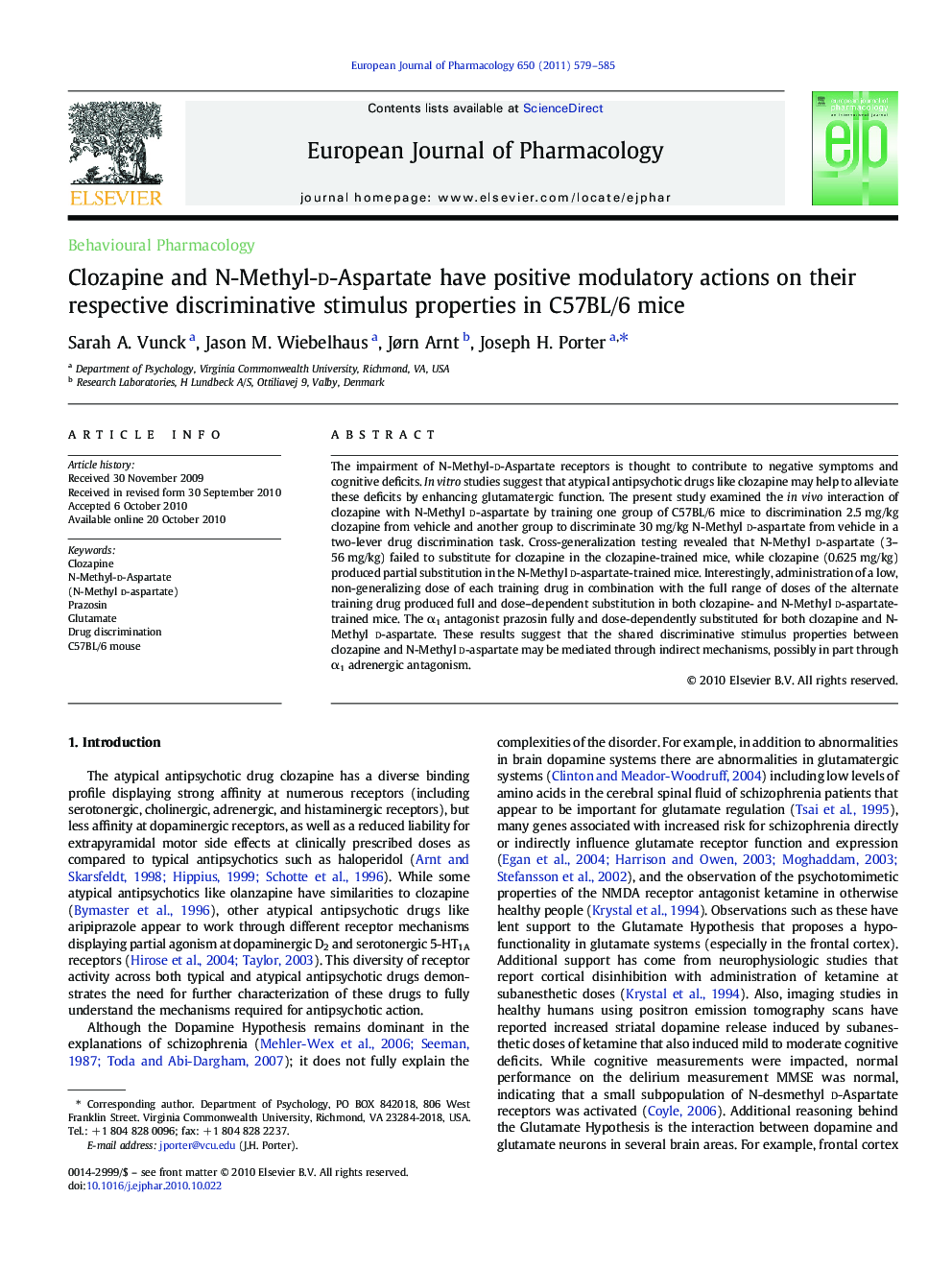| Article ID | Journal | Published Year | Pages | File Type |
|---|---|---|---|---|
| 2533031 | European Journal of Pharmacology | 2011 | 7 Pages |
The impairment of N-Methyl-d-Aspartate receptors is thought to contribute to negative symptoms and cognitive deficits. In vitro studies suggest that atypical antipsychotic drugs like clozapine may help to alleviate these deficits by enhancing glutamatergic function. The present study examined the in vivo interaction of clozapine with N-Methyl d-aspartate by training one group of C57BL/6 mice to discrimination 2.5 mg/kg clozapine from vehicle and another group to discriminate 30 mg/kg N-Methyl d-aspartate from vehicle in a two-lever drug discrimination task. Cross-generalization testing revealed that N-Methyl d-aspartate (3–56 mg/kg) failed to substitute for clozapine in the clozapine-trained mice, while clozapine (0.625 mg/kg) produced partial substitution in the N-Methyl d-aspartate-trained mice. Interestingly, administration of a low, non-generalizing dose of each training drug in combination with the full range of doses of the alternate training drug produced full and dose–dependent substitution in both clozapine- and N-Methyl d-aspartate-trained mice. The α1 antagonist prazosin fully and dose-dependently substituted for both clozapine and N-Methyl d-aspartate. These results suggest that the shared discriminative stimulus properties between clozapine and N-Methyl d-aspartate may be mediated through indirect mechanisms, possibly in part through α1 adrenergic antagonism.
